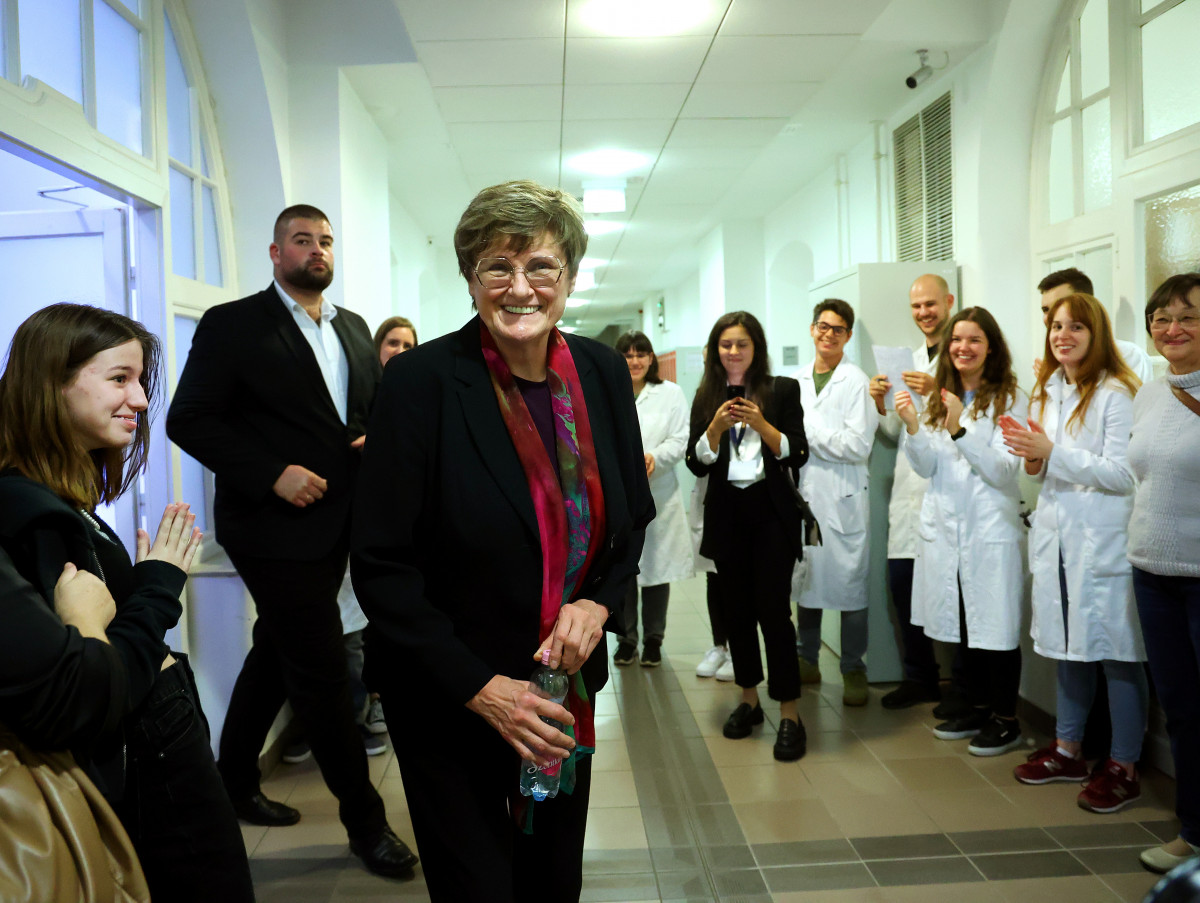Understanding and science were always at the center of her interest, and she never dreamed of receiving a prize for her research – Katalin Karikó talked about this, among other things, in front of journalists in Stockholm.
For me, what was always interesting was to understand a biological process, I concentrated on that and never dealt with how it is promoted – stressed Katalin Karikó in response to a journalist’s question.
“There are those who say that all scientists work to receive such a prize, but I never dreamed of such a prize, nor of the other prizes. Science was the focus of my interest and I did not desire to be recognized and recognized or patted on the back”
– said the biochemist, who was awarded this year’s Nobel Prize in Medicine and Physiology with Drew Weissman for their discoveries that laid the foundation for the development of mRNA-based vaccines.
Katalin Karikó also talked about how she always really enjoyed being able to do research, which is as exciting as an investigation, and she wants to pass this on to young people.
Speaking about the difficulties she had to face, Katalin Karikó noted that many of the Nobel Prize-winning scientists had difficulties during their careers, her case being “demoted” or dismissed several times is not unique. The research was interesting, progress was made, and she felt successful in the lab.
When asked where her faith comes from, which helps her through all difficulties, she said that she read the book of János Selye, who became known as a stress researcher, when she was in high school and learned from it: we must focus on what we can change. Being fired didn’t affect her, but the direction she went after it did, and that’s why she focused more on that. She didn’t feel sorry for herself.
She recalled joining BioNTech when it was last laid off 10 years ago.
Speaking about the award at the press conference, Drew Weissman emphasized that it is fantastic that mRNA research has received such recognition.
Katalin Karikó added that:
the award directs attention to science, which is why it is important for the field. She recalled that the pandemic gave a boost to the field of mRNA research. More than 250 clinical trials are currently underway in various fields, testing vaccines against pathogens such as HIV and herpes viruses, the bacteria that cause Lyme disease or TB, and the parasite that causes malaria, but for cancer vaccines, genetic diseases and allergies technology is also used to treat
In response to the question about anti-vaccines, Katalin Karikó reminded us that people are afraid of anything new at first. In the absence of adequate knowledge, they create explanations and start to fear the new. It is also the task of scientists and journalists to provide people with adequate knowledge, she told the journalists at the press conference.
Drew Weissman also emphasized how important it is for people to understand science and not be afraid of it. He reminded us that many people are afraid of science in general, and that fear has been growing in recent years.
Katalin Karikó, when asked by journalists how she felt in the week before the Nobel Prize ceremony, said that she was happy that others were happy. They received a very nice reception, which she called a great honor.
She also talked about how they attended the meeting with the Hungarian doctors in Sweden on Tuesday, where she was very touched by how warmly they received her.
When asked where her Nobel Prize goes, she said that she puts a copy of the prize in a display case, and locks the original away somewhere.
(MTI)


















